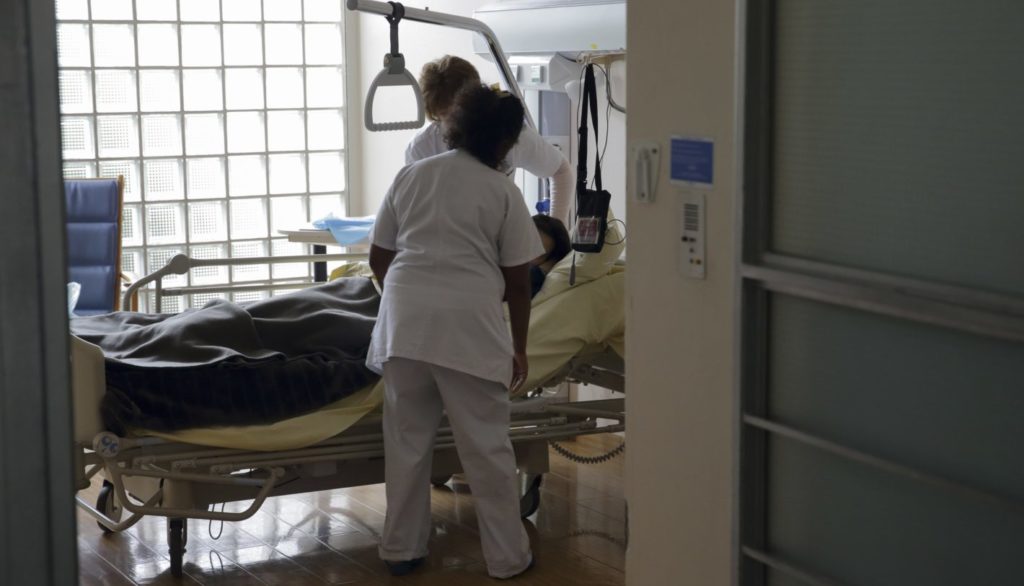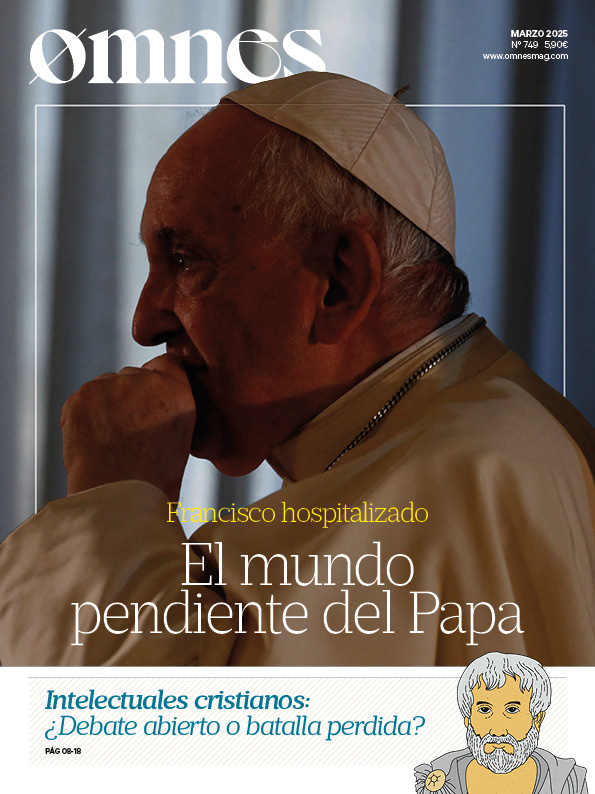During the General Audience on Wednesday, February 9, Pope Francis dedicated his catechesis to "the special devotion that the Christian people have always had to St. Joseph as the patron of the good death. A devotion born of the thought that Joseph died in the presence of the Virgin Mary and Jesus, before they left the house of Nazareth".
"Pope Benedict XV," Francis began, "a century ago, wrote that 'through Joseph we go directly to Mary, and, through Mary, to the origin of all holiness, Jesus.'" And encouraging pious practices in honor of St. Joseph, he advised one in particular: "Being deservedly considered as the most effective protector of the dying, having died in the presence of Jesus and Mary, it will be the care of the sacred Pastors to inculcate and foster [...] those pious associations that have been established to beseech Joseph on behalf of the dying, such as those of the 'Good Death', of the 'Transitus of St. Joseph' and 'for the dying'" (Motu proprio Bonum saneJuly 25, 1920)".
The Holy Father assures us that "our relationship with death never refers to the past, but always to the present. The so-called culture of 'well-being' tries to eliminate the reality of death, but in a dramatic way the coronavirus pandemic has once again brought it to the fore. Many brothers and sisters have lost loved ones without being able to be near them, and this has made death even harder to accept and to deal with".
The pontiff recalls that the Christian faith helps us to face death. "The true light that illumines the mystery of death comes from the resurrection of Christ. St. Paul writes: "Now if Christ is preached as having been raised from the dead, how do some among you go about saying that there is no resurrection of the dead? If there is no resurrection of the dead, neither was Christ raised from the dead. And if Christ has not been raised, our preaching is empty, your faith is also empty" (1 Cor 15,12-14)".
"Only through faith in the resurrection can we look into the abyss of death without being overwhelmed by fear. Not only that: we can give death a positive role. In fact, thinking about death, illuminated by the mystery of Christ, helps us to look at the whole of life with new eyes. I have never seen a moving van behind a hearse! There is no point in accumulating if one day we will die. What we must accumulate is charity, the ability to share, not to remain indifferent to the needs of others. Or, what is the sense of fighting with a brother, with a sister, with a friend, with a relative, or with a brother or sister in faith if one day we will die? In the face of death, many questions are re-dimensioned. It is good to die reconciled, leaving no grudges and no regrets!"
Referring to the parallelism made in the Gospel, "it tells us that death comes like a thief, and no matter how much we try to keep its arrival under control, perhaps by programming our own death, it remains an event to which we are accountable and in front of which we also have to make choices".
Finally, the Pope wished to underline two considerations: "the first: we cannot avoid death, and precisely for this reason, after having done everything humanly possible to care for the sick person, therapeutic incarceration is immoral (cfr Catechism of the Catholic Church, n. 2278)".
And "the second consideration has to do with the quality of death itself, of pain, of suffering. In fact, we should be grateful for all the help that medicine is striving to give, so that through the so-called "palliative care", every person who is preparing to live the last stretch of his or her life's journey can do so in the most humane way possible. But we must be careful not to confuse this help with unacceptable aberrations that lead to euthanasia. We must accompany death, but not provoke death or assist assisted suicide. I recall that the right to care and care for all must always be privileged, so that the weakest, in particular the elderly and the sick, are never discarded. In fact, life is a right, not death, which must be welcomed, not provided. And this ethical principle concerns everyone, not only Christians or believers".
He concluded his catechesis by invoking St. Joseph so that "he can help us to live the mystery of death in the best possible way. For a Christian the good death is an experience of God's mercy, which becomes close to us also in that last moment of our life. Also in the Hail Mary prayer, we pray asking Our Lady to be close to us "now and at the hour of our death". Precisely for this reason I would like to conclude by praying together a Hail Mary for the dying and for those who are in mourning.








